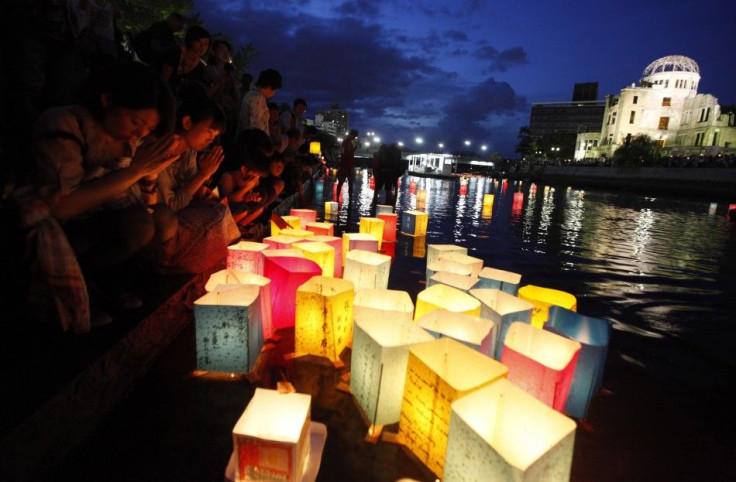[PHOTOS] Hiroshima's 66th Anniversary of Atomic Bombing Reflects Fukushima Nuclear Meltdown

August 6th marks the 66th anniversary of the world's first atomic bombing in Hiroshima, which cost an estimate of 140,000 lives by the end of the year of 1945.
Naoto Kan, Japanese Prime Minister, attended the anniversary in Hiroshima and reaffirmed the urgency to reduce Japan's dependence on nuclear energy.
”The humanity must never forget the tragedy of atomic bombs that hit Hiroshima 66 years ago, and we should never repeat it," declared Kan.
"Representing the Japanese government, I make a pledge that our nation, which became the victim of the atomic bomb during the World War II, will comply with the constitution and maintain our three antinuclear principles [not to possess, make, or receive nuclear weapons] for the realization of total abolition of nuclear weapons and lasting world peace."
Saturday also marks the first anniversary since the Fukushima Daiichi nuclear meltdown, triggered by a massive earthquake followed by tsunami.
During his speech, Kan referred to the accident saying, "It has given a great unrest to not only Japan but the whole world."
The prime minister promised the nation's sincere attitude toward the remaining tasks in dealing with the aftermath as well as prevention of further damage.
Denis Doherty from the Hiroshima Day Committee compared the two historic events and said,
"Both areas had ground zero. Both had incredibly large death tolls. Hiroshima, Nagasaki and now Fukushima have areas where people are getting radiation-induced cancer."
Historically, Japan's prime ministers who attended the August 6th anniversary in Hiroshima have all addressed their determination to eradicate nuclear weapons. However, their focus was never on the non-military use of nuclear power.
Now that the safety myth of atomic power was shattered at the Fukushima accident, all eyes are on Japan for its direction in setting the nation's energy policies.
While some politicians raised eyebrows at the political implications of prime minister's remarks upon the nuclear energy policy, Kan went on to address the connection between nuclear weapons and nuclear energy, pointing out their common risks of radiation emittion.
From Hiroshima and around the world, prayers and anti-nuclear protests were seen on August 6th, 2011.
© Copyright IBTimes 2025. All rights reserved.





















